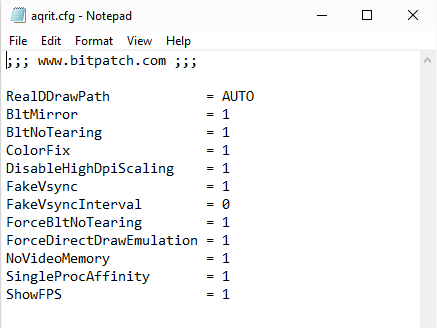More Numberphile-inspired stuff! Simon has been studying Mersenne Primes (2^n – 1) and their relation to perfect numbers via the Numberphile channel and heard Matt Parker say no one has proved that there are no odd perfect numbers (that perfect numbers are always even). In the video below, Simon tries to prove why all perfect numbers are even. Here is Simon’s proof: When calculating the factors of a perfect number you start at 1 and you keep doubling, but when you reach one above a Mersenne prime, you switch to the Mersenne prime, and then keep doubling again. Once you double 1, you get 2, so 2 is ALWAYS a factor of any perfect number, which makes them all even (by definition, an even number is one divisible by 2):
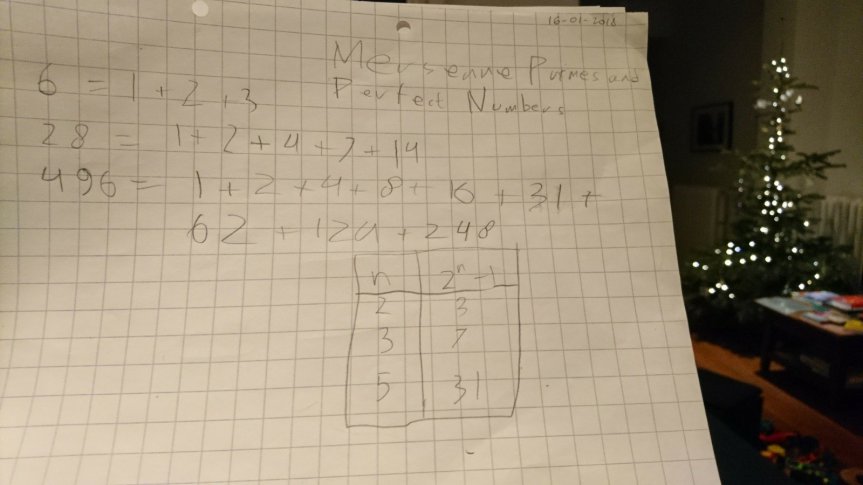
More topics Simon learned about from the Numberphile channel included:
The Stern-Brochot Sequence:
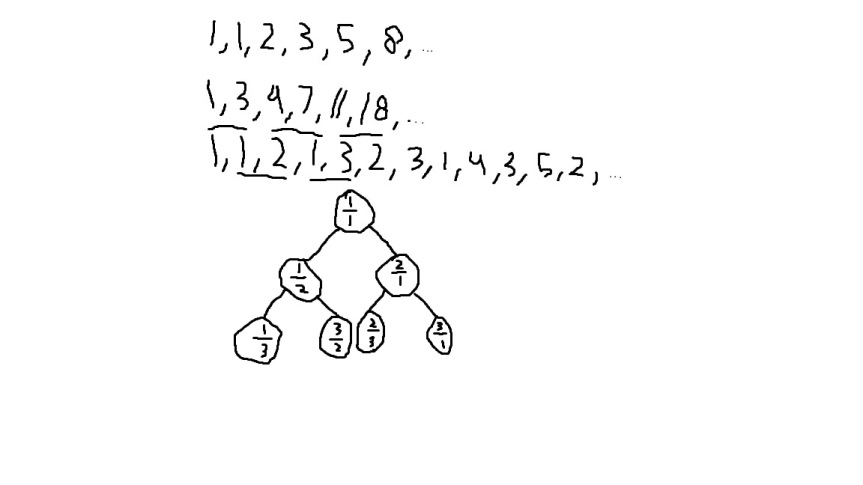
Prime Factors:
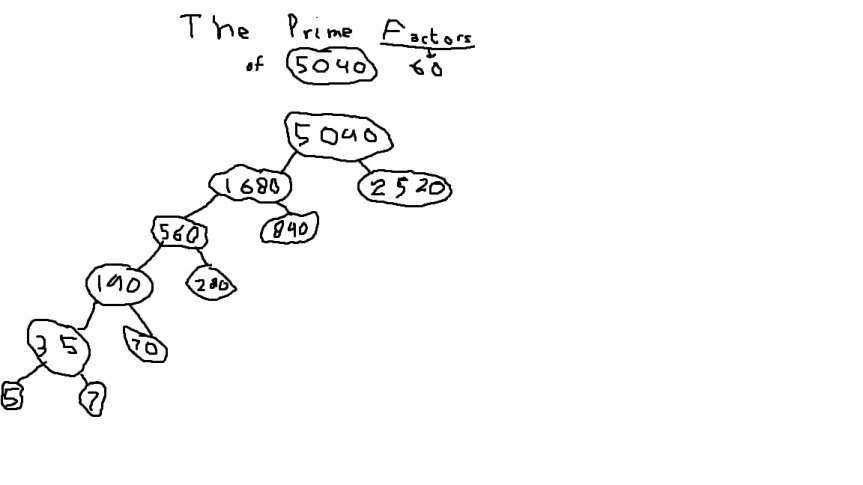
Checking Mersenne Primes using the Lucas-Lehmer Sequence. Simon’s destop could only calculate this far:
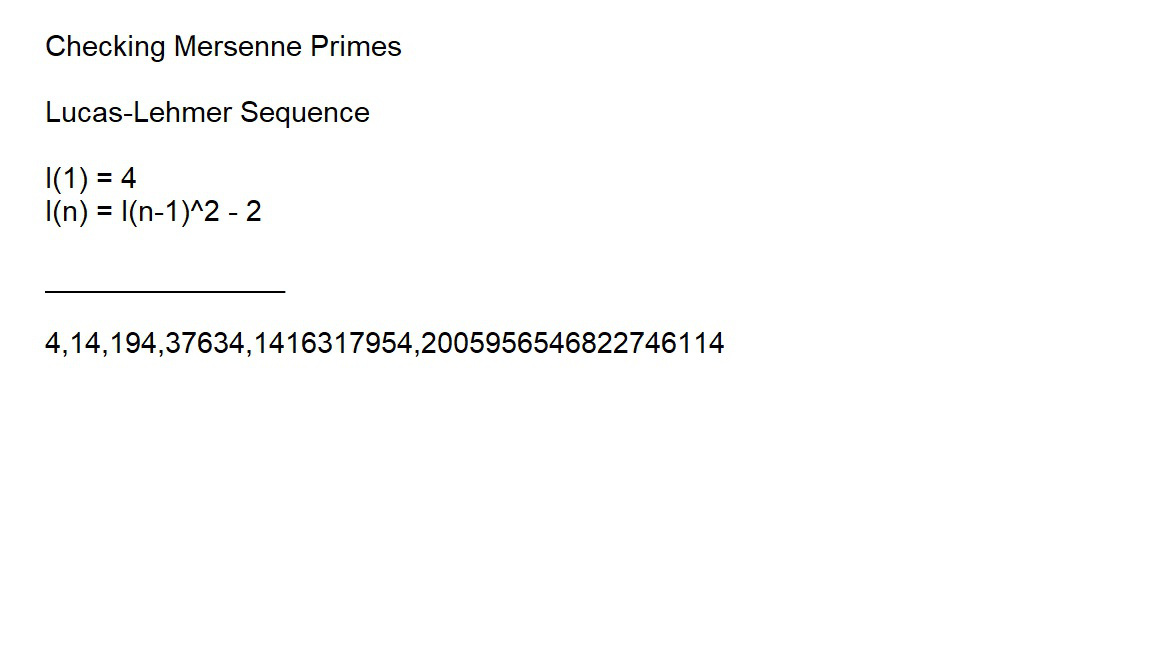
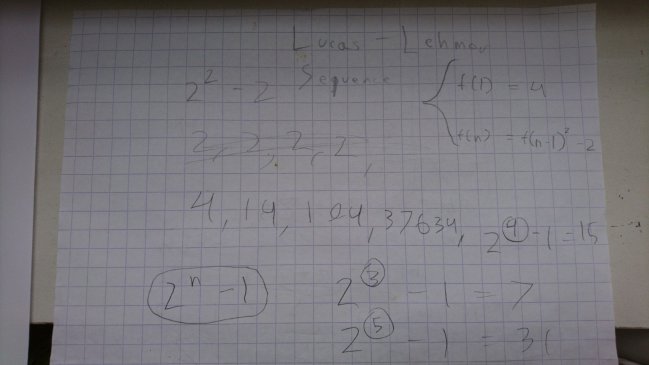
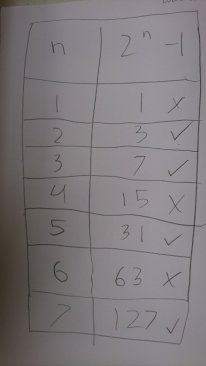
The 10958 problem. Natural numbers from 0 to 11111 are written in terms of 1 to 9 in two different ways. The first one in increasing order of 1
to 9, and the second one in decreasing order. This is done by using the operations of addition, multiplication, subtraction, potentiation,
and division. In both the situations there are no missing numbers, except one, i.e., 10958 in the increasing case (Source). The foto below comes from the source paper, not typed by Simon, but is something he studied carefully:

Simon’s notes on the 10958 problem:
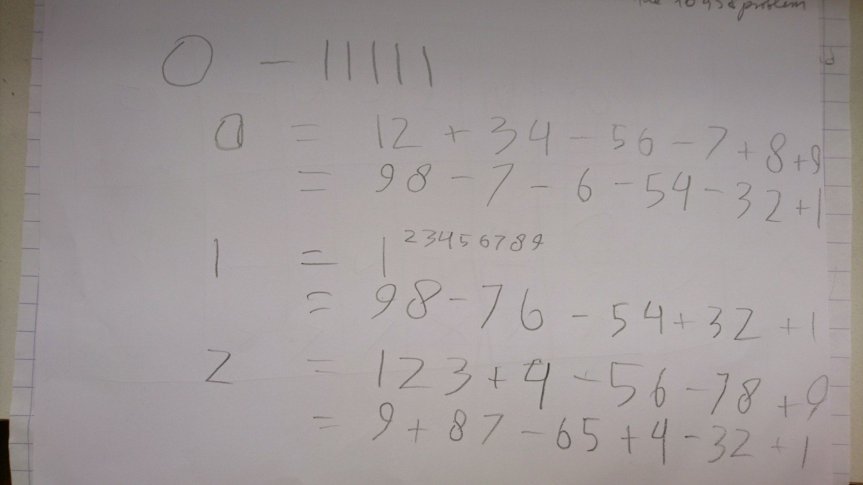
The Magic Square (adding up the numbers on the sides, diagonals or corners always results in the number you picked; works for numbers between 21 and 65):
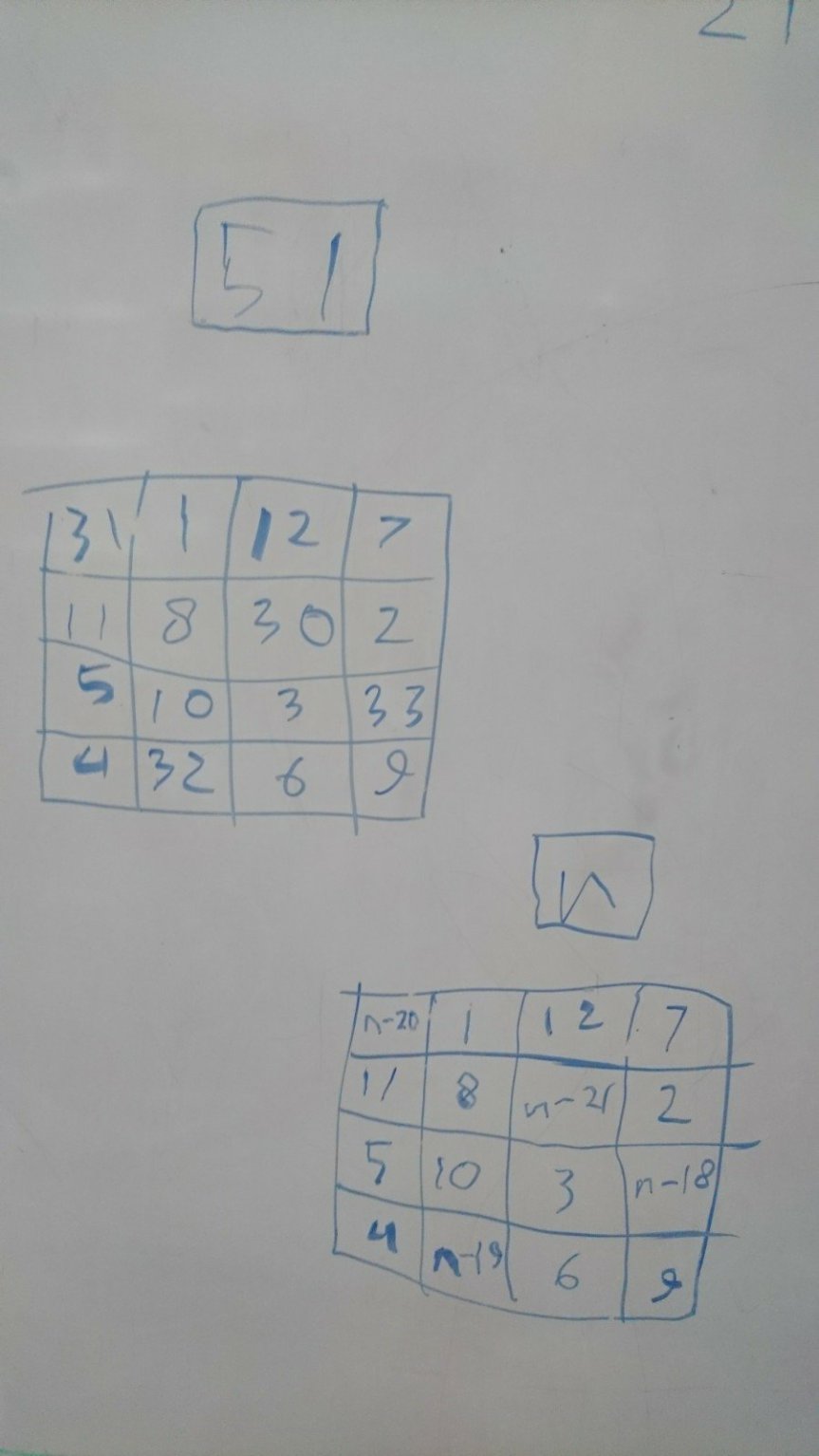
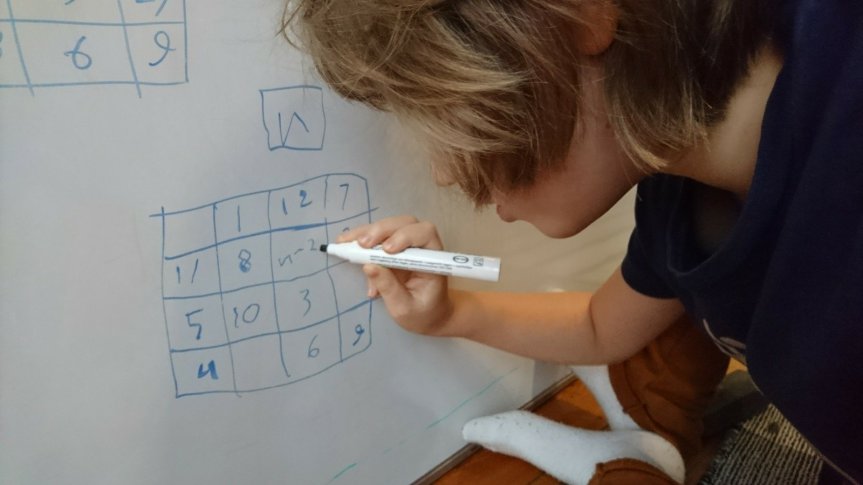
Simon also got his little sis interested in the Magic Suare:
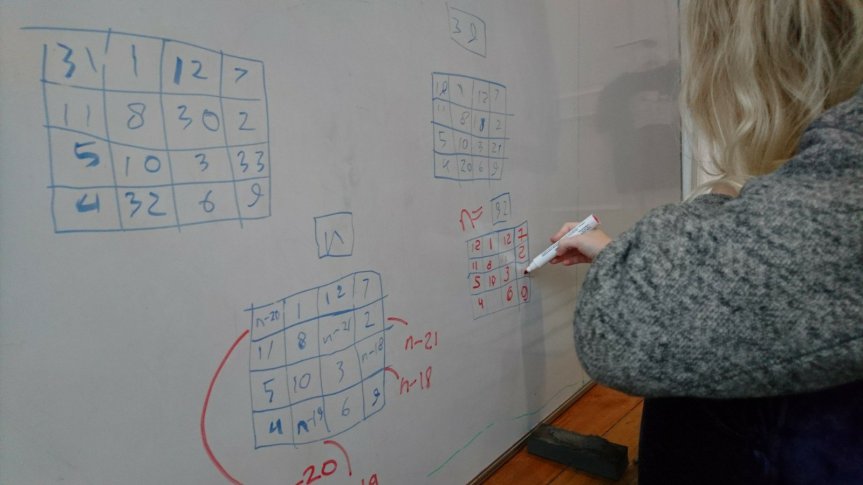
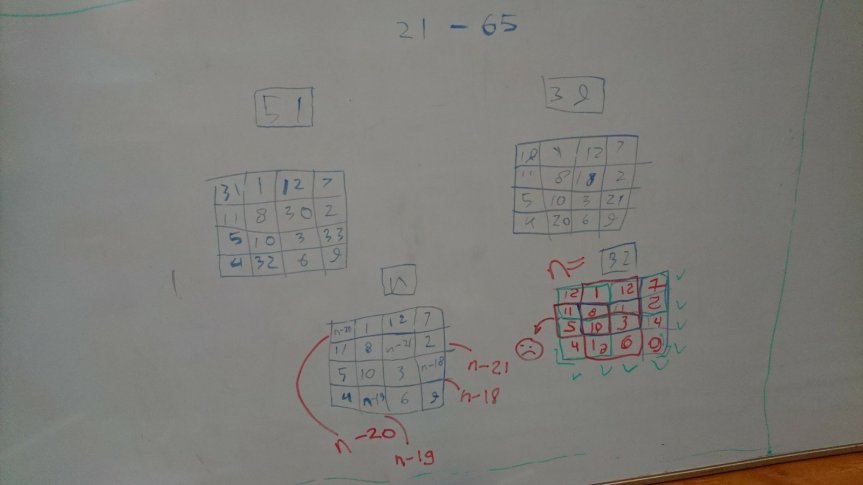

And, of course, the Square-Sum problem, that we’ve already talked about in the previous post.
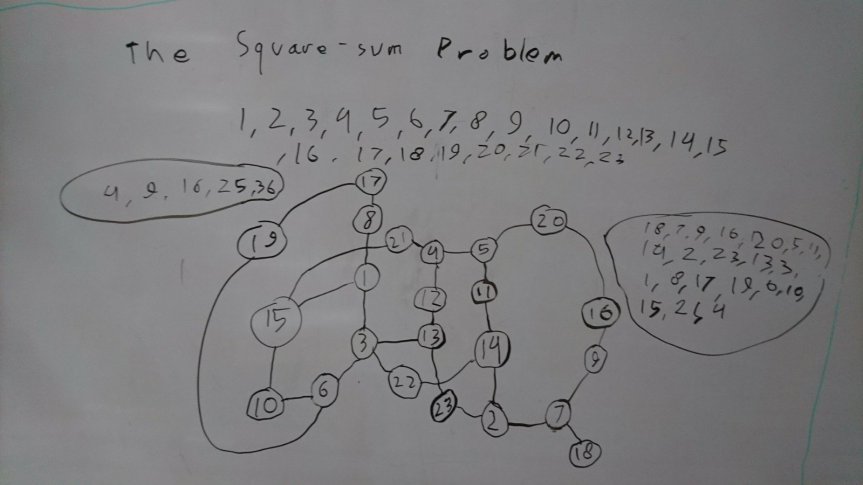
Simon’s 3D version of the Square-Sum problem:




